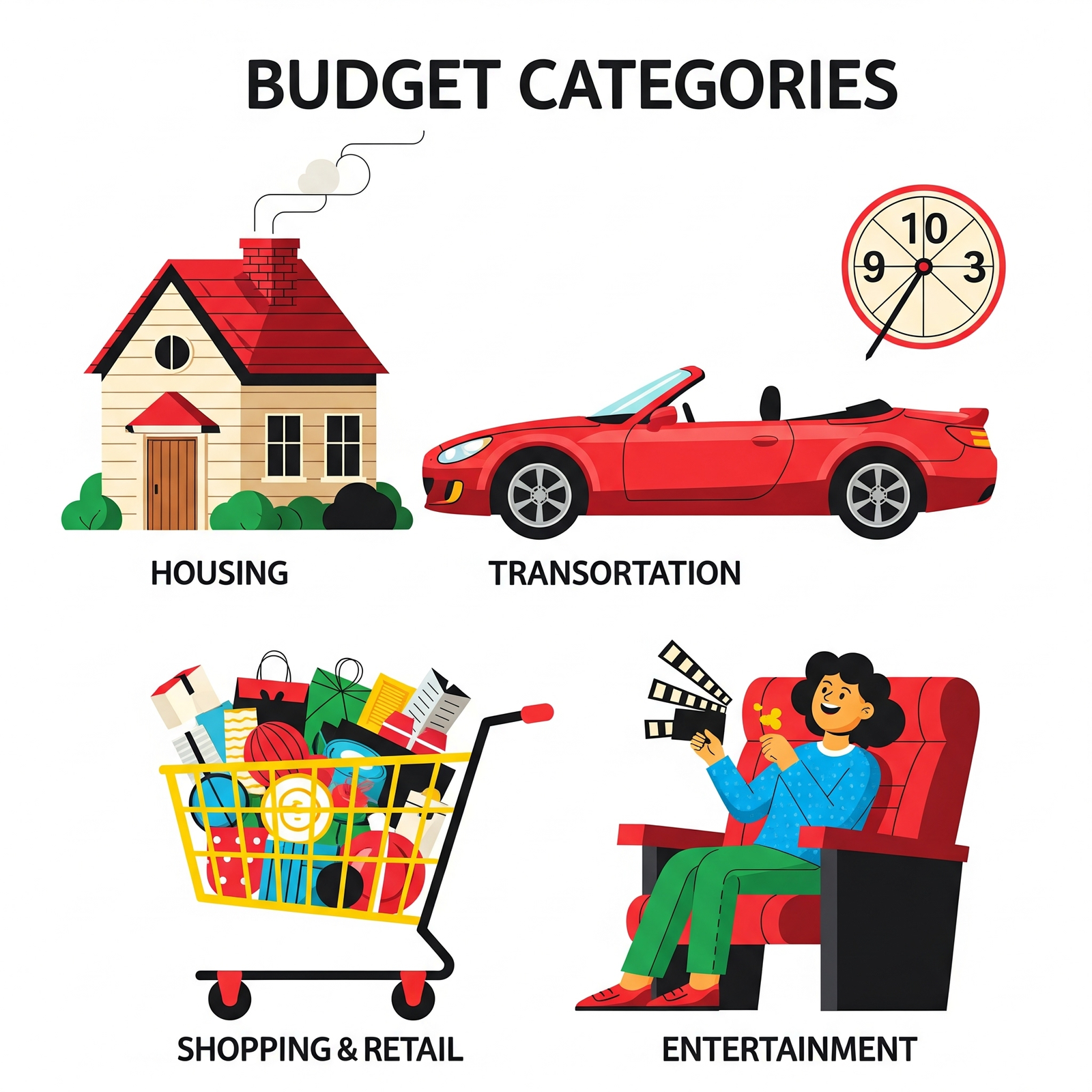Understanding the Importance of Budgeting
A budget calculator is more than just a tool to track your money; it's a powerful instrument for achieving financial stability and realizing your long-term goals. By meticulously outlining your income and expenses, you gain clarity on your financial habits, enabling you to make informed decisions about your spending and saving.
Budgeting helps you move beyond just knowing where your money goes; it empowers you to tell your money where to go. This proactive approach is crucial for building savings, paying down debt, and investing for the future, whether it's for a down payment on a house, a comfortable retirement, or your child's education.
 Visual representation of financial growth achieved through effective budgeting.
Visual representation of financial growth achieved through effective budgeting.
Fixed vs. Variable Expenses
Understanding the distinction between fixed and variable expenses is fundamental to effective budgeting:
- Fixed Expenses: These are costs that remain relatively constant each month, regardless of your activity level. Examples include rent or mortgage payments, car loan payments, insurance premiums, and subscription services.
- Variable Expenses: These costs fluctuate from month to month and are often within your control. Examples include groceries, dining out, entertainment, utilities (which can vary with usage), and transportation costs (gas, public transit). Successfully managing variable expenses is often key to finding areas for savings.
Popular Budgeting Methods to Consider
There are several effective budgeting methods, each with its unique approach. Choosing the right one depends on your personal preferences, financial situation, and goals:
1. The 50/30/20 Rule
This popular and straightforward method suggests dividing your after-tax income into three main categories:
- 50% for Needs: Essential expenses like housing, utilities, groceries, transportation, and minimum loan payments.
- 30% for Wants: Discretionary spending such as dining out, entertainment, hobbies, new clothes, and vacations.
- 20% for Savings & Debt Repayment: This includes contributions to your emergency fund, retirement accounts, and extra payments towards high-interest debts.
2. Zero-Based Budgeting
With zero-based budgeting, every dollar of your income is assigned a "job" – whether it's for an expense, savings, or debt repayment – until your income minus your expenses equals zero. This method ensures that no money is left unaccounted for, maximizing your financial control.
3. The Envelope System
Ideal for those who prefer to use cash, the envelope system involves allocating a specific amount of cash into physical envelopes for different spending categories (e.g., "Groceries," "Entertainment"). Once an envelope is empty, you stop spending in that category until the next budgeting period.
Essential Tips for Effective Budgeting
While a budget calculator provides the framework, successful budgeting also requires discipline and smart practices:
- Track Every Expense: Be diligent about recording all your expenditures, no matter how small. Little purchases can add up quickly and derail your budget.
- Set Realistic Goals: Don't try to cut too much too fast. Set achievable saving and spending goals that you can realistically stick to, then gradually increase them.
- Review and Adjust Regularly: Your budget is a living document. Life changes, so your budget should too. Review it monthly to ensure it still aligns with your income, expenses, and financial goals.
- Automate Your Savings: Set up automatic transfers from your checking account to your savings or investment accounts each payday. "Pay yourself first" ensures your savings grow consistently.
- Build an Emergency Fund: Aim to save 3-6 months' worth of living expenses in an easily accessible savings account. This fund acts as a safety net for unexpected events.
Common Budget Categories to Include
When setting up your budget, consider these common categories to ensure you capture all your financial activity:
- Housing: Rent/Mortgage, property taxes, home insurance.
- Utilities: Electricity, water, gas, internet, trash removal.
- Food: Groceries, dining out, coffee shops.
- Transportation: Car payments, gas, public transit, car maintenance, insurance.
- Debt Payments: Credit card minimums, student loans, personal loans.
- Personal Care: Haircuts, toiletries, gym memberships.
- Entertainment: Movies, concerts, streaming services, hobbies.
- Health: Medical bills, prescriptions, health insurance premiums.
- Clothing: Apparel and accessories.
- Savings & Investments: Retirement accounts, emergency fund, investment accounts.
- Miscellaneous/Other: Any expenses that don't fit neatly into other categories.
 Visual overview of typical budget categories to help you organize your finances.
Visual overview of typical budget categories to help you organize your finances.